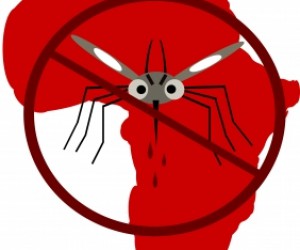In Africa, malaria has been one of the main causes of deaths, along with HIV/Aids and TB, killing a million people each year. Scientists in South Africa and around the world have battled for many years, in order to develop treatment, advance it and possibly cure these diseases. Malaria accounts for 24% of total child deaths in sub-Saharan Africa. It is transmitted by infected mosquitoes- and children and pregnant women are most susceptible to it. According to the World Health Organization, there are an estimated 300 million acute cases of malaria each year globally.
MInister Naledi Pandor made an announcement last week that a collaboration between scientists, both locally and abroad, could result in a possible breakthrough in the fight against malaria. "I have the pleasure to announce the discovery of a compound which will be the first ever clinical candidate researched on African soil as part of a modern pharmaceutical industry drug discovery program. The candidate molecule is novel, potent, and has the potential to have a significant impact on global malaria control and eradication. Clearly the war on disease is not yet won, but I am excited by the role that our excellent scientists have played in finding a potential single-dose cure for malaria and possibly preventing its transmission.
This development had occurred together with significant growth in the basic sciences that underpinned infectious disease research (immunology, virology, microbiology, biochemistry, and genetics) " Pandor said.
This is clearly a good example of what can be achieved when open minded researches come together for the sake of the greater good. The new discovery will alleviate the burden of the disease within Africa and other affected countries. South Africa has developed within the field of clinical research and has achieved great strides within the HIV/Aids and TB arena.
The discovered compound, from the aminopyridine class, is said to not only have the capability of being a single-dose cure for all strains of malaria, but could also aid in blocking transmission of the parasite from person to person.
The collaboration involved the Medicines for Malaria Venture (MMV), based in Switzerland, and the Drug Discovery and Development centre (H3-D) at UCT. A R25 million was invested in this program by MMV and UCT. MMV has proposed further studies in order to provide clear and concise evidence. Professor Jim Wells, of Medicines for Malaria Venture, said while SA was not hugely affected by malaria, the research should be seen as a “gift of SA to the rest of Africa”.
Professor Kelly Chibale, lead researcher of the collaborative research project, said while the molecule had not been tested on humans yet, animal studies had shown “potent activity against multiple points in the malaria parasite’s lifecycle.
"While the malaria parasite was sometimes resistant to conventional multidrug malaria treatment, initial results of the 18-month research showed the molecule had killed the resistant parasites instantly. While it would take another year before human clinical trials, and possibly another seven years before a malaria drug was developed, Chibale described the latest findings as “exciting”, as the single dose would encourage drug compliance. “Our research showed that all the animals were cured with no toxicity or side effects. The molecule has been able to kill parasites that are resistant to existing drugs."






